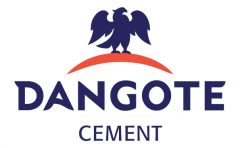
Chairman of the Lagos District Society of the Chartered Institute of Taxation of Nigeria (LDS-CITN), Mrs. Oluwatoyin Campbell, on Monday said the Federal Government’s recently launched Voluntary Asset and Income Declaration Scheme (VAIDS) would be more successful with proper accountability on the part of the three-tiers of government.
Mrs Campbell, who spoke when she led the executive committee of the Lagos District on a courtesy visit to Chief Cyril Ikemefuna Ede, the 13th President of CITN in his office, The Tax Professional House, Ikeja, Lagos, said the visit was, among others, to further enhance the collaboration with the Institute.
This, she continued, is with a view to strategically position its members in preparation of the recently VAIDS launched by the Federal Government, stressing the role of professionals in achieving this objective aimed at revenue generation to fund the yearly budgets.
Being the “District of Excellence,” the chairman said the LDS “has the highest number of council membership and can boast of seasoned professionals within the institute.
Responding, the CITN President assured that the institute is poised to sensitize the public on the importance of the Federal Government’s VAIDS, beginning with proper training of the institute’s members to appreciate and embrace the scheme, expressing hope that the project would succeed for the good of the nation.
The CITN President made presentations to the LDS teams, after which Mrs Campbell presented souvenirs of the District to her host.
Chief Ede received the LDS team in company of the CITN Vice president, Mrs. Olajumoke Simplice; immediate past president, Prof. Mrs Teju Somorin; as well as the Registrar/Chief Executive of the Institute, Mr Adefisayo Awogbade, among other council members.
Speaking in Abuja shortly after the launch of the VAIDS by Professor Yemi Osinbajo, the acting president, Finance Minister, Mrs. Kemi Adeosun said the scheme offers a 9-month window for Nigerians, who may have evaded tax, whether ignorantly or deliberately, in the past six years, to pay the correct taxes, thereby avoiding criminal prosecution at the expiration of the deadline.
The scheme embraces all Federal and State taxes such as Companies Income Tax, Personal Income Tax, Petroleum Profits Tax, Capital Gains Tax, Stamp Duties, Tertiary Education Tax, Technology Tax, Tenement Rates, and Property Taxes. It also covers all back taxes for the last six years in line with the statutory periods of limitation under the relevant tax statutes.
The scheme, she explained further, “is specifically targeted at taxpayers who have not been fully declaring their taxable income/assets; have not been paying the tax due at all; have been underpaying or under remitting; are under a process of tax audits or investigations with the Relevant Tax Authority; are engaged in tax disputes with the Relevant Tax Authority but are prepared to settle the tax dispute out of court; are new taxpayers who are yet to register with the tax authorities; and are existing registered taxpayers who have new disclosures to make.
“It does not matter whether the relevant tax default arose from undeclared assets within or outside the country. If tax should have been paid, the Voluntary Asset and Income Declaration Scheme is providing a once in a lifetime opportunity to declare the tax outstanding and resolve it definitively”.
The Minister further disclosed that one great benefit of participating in the Scheme is that taxpayers would be free to transfer assets that they had previously held in nominee and other names into their own name.
Mrs. Adeosun decried Nigeria’s low tax revenue to GDP ratio, which at 6% and the world’s lowest, compared to India’s of 16%, Ghana’s of 15.9 %, and South Africa’s of 27%, which she lamented is at variance with the lifestyles of a large number of its people and with the value of assets known to be owned by Nigerians resident around the world.
She noted the systemic breakdown of compliance with the tax system with various strategies used to evade tax obligations such as transfer of assets overseas, use of offshore companies in tax havens to secure assets, and the registration of assets in nominee names.















